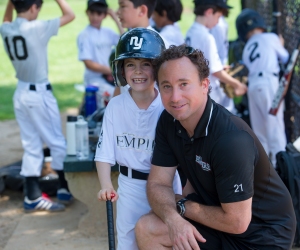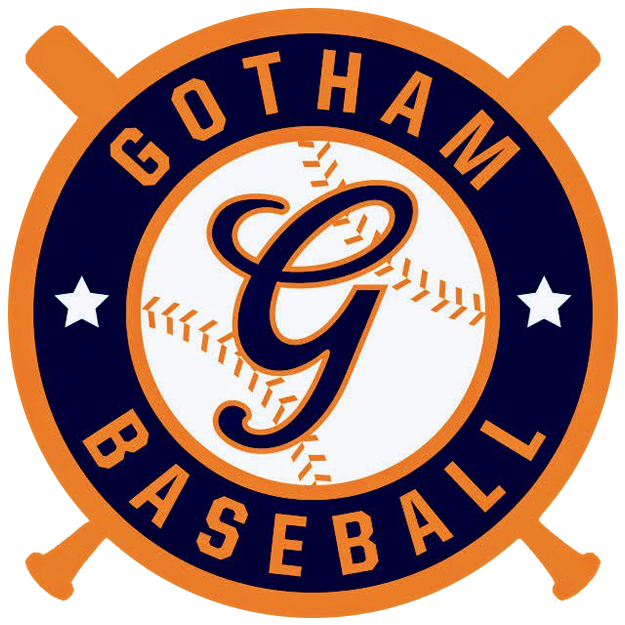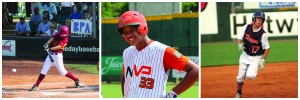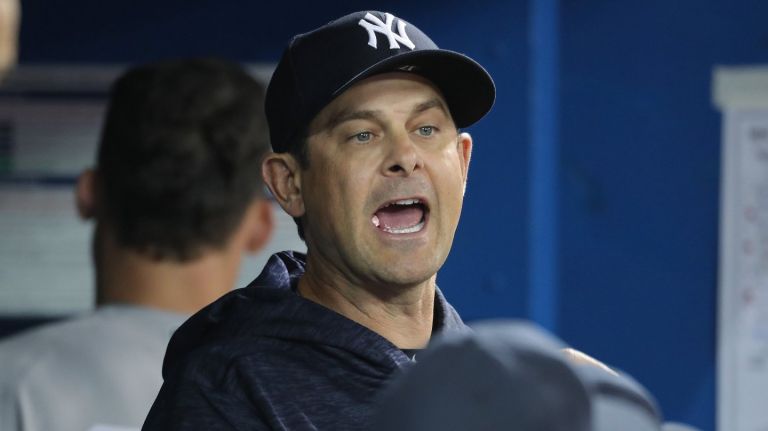
I’ve had the pleasure of covering big league baseball and being involved in youth coaching the last several years, and I have often wondered why the “New York Game” as we call it here at Gotham Baseball, isn’t as well-represented in MLB as are other parts of the country. Part of the problem is how MLB teams look for talent, as there seems to be very few MLB scouts on hand in NYC for even the best of programs.
Despite the obvious weather-related reasons why most kids playing baseball in New York don’t get as much attention as their warm-weather counterparts, we decided to look closer at the problem.
First, we sat down with Jordan Baltimore, who runs a top grade teaching academy in NYC called New York Baseball Empire, which spends as much time training older kids to coach, as teaching younger ones to play.
Gotham Baseball: Do you have any theories about why so few New York area players make it to big leagues? Is it geography, bias or something else?
Jordan Baltimore: My understanding from the past is that a study was done many years ago as to the geographic dispersion of baseball players that made the major leagues, and it seemed decades ago that dispersion was wide across the US, with many players coming in “clusters” – that is, 3 or 4 or 5 guys from the same town/neighborhood made the bigs together. Would best be explained by their propensity and time devoted to playing the game. Now things have changed significantly – with southern California and Georgia being hotbeds of recruiting “5A” High School players. Aside from the obvious – the inability to or unlikelihood of playing year round – it would seem to be that this very well may be a cycle in which a number of factors are contributing:
Lack of top tier coaching– Given the current sense of low likelihood of top notch ballplayers coming from New York, top tier coaches may be bringing their own talents elsewhere.
Also, given the expense of living/working in New York, coaches are unlikely to return here for work.
Low parent involvement/expertise– Baseball dads are abound in other cities – dads that have great athletic backgrounds – and there may be a negative correlation between the key industries in New York and baseball coaching ability. IE – is a Wall Streeter less likely to be a good baseball coach than other industries that don’t dominate the landscape in other locales?
Lack of interest– Given that same sense, players that are “serious” don’t stay in New York. We know of one such instance in a young player whose family moved to New Jersey to continue their efforts to grow his baseball career – he landed on the USA Baseball team at a very young age. We had another “serious” ballplayer leave for Florida.
Other opportunities– New York offers everything – and parents in New York encourage their children to engage in everything. It seems to me that there is a mindset of diversification in New York families that may not be ubiquitous nor prevalent in other cities and locations.
Poor conditions relative to other sports– Sports like soccer, lacrosse, football and basketball seemed to have gained popularity relative to baseball as field conditions and quality baseball organizations have diminished in the area.
Unfortunately it seems to me like many of these conditions/causes will continue to accelerate. I tend to think that our brand and approach of coaching has bucked the trend – as our culture and content are unique – with our culture focused on maturity of the players and the coaches. And the content is science-based, not traditional. Our coaches are trained that their job is not to win the game – but to motivate and prepare players to win.
GB: What is it about your academy that makes it so popular, what different things are you doing than other places?
JB: As an organization, we also teach the same content from each coach to every player. We don’t have different coaches that teach different techniques. We all teach the same material and teach it consistently. We’re also constantly evolving in terms of our methods and our content. We’re always looking for answers – and taking every opportunity and teaching moment as a moment to learn, ourselves, how to become better coaches. Finally our business practices are sound – we put the players before the profits. We know that business success will be a long-term result of our players having an experience that is second-to-none.
GB: I coach Little League, have done so for many years. What’s right / wrong with youth baseball as its being run now, and are travel teams the answer.
JB: Travel teams aren’t necessarily the “answer.” Little Leagues need to do a better job of organizing and training their parent-coaches – and eliminating the arguments and yelling that are predominant in these environments. It’s disappointing to see some of the LL dads arguing all the time at games. Not only is it counterproductive, it teaches the kids some awful lessons. We make it clear to our players that we don’t argue calls with the umpires – ever – we will question the rules and how they are applied – and do it respectfully. But balls, strikes, safe/out – we never argue – we teach the kids that mistakes may happen – and that in life you need to learn to deal with those mistakes once they’ve occurred – not to try to shout loud enough to get the mistake changed. Umps aren’t going to change strike calls as a result of being yelled at. Also – the time that teams spend practicing can be made more effective with better planning around practice organization – it would behoove these organizations to connect with trainers that can help both the coaches and the players to succeed in the long-term.
GB: What advice would you give to parents who have a talented kid at 12 years of age?
JB: The advice we would give would be to support the player – not to push him – give him the opportunity to be challenged and to develop – and to do it with a keen eye toward arm and body health. Find a trainer that can help to develop the 12 year old and guide him through his next 5 years of baseball, as the combination of HS and Travel baseball is a challenging one – both physically and mentally. Additionally, a trainer can help to identify areas of opportunity for the player – that is, where has the player succeeded as a result of sheer athleticism versus actual developed skill. When players move up tot he 60/90 fields, many of them are surprised by their sudden inability to hit successfully – their poor swing quality making the -3 wood bats feel too heavy, and the larger field suddenly presenting an insurmountable task of hitting the ball out of the infield. For years they succeeded using light metal bats on tiny fields – only to find that they are suddenly behind the curve on the larger field with a real bat. Focus on physical, mental and mechanical development, not just on athleticism as a road to future success.
***
I also spoke with Alan Lubell, who runs the National Youth Baseball Tournament that is coming to New York for the first time after five years in Memphis, TN. The tourney will be in Baseball Heaven in August in Yaphank, NY.
Gotham Baseball: Parents have so many programs to choose from, and in my experience, very few have any clue of what is the right direction; how does someone overcome their limitations in a limited environment such as Long Island Little League to excel for a team in ours?
Alan Lubell: Generally parents sign up their kids, ages 8-12 in rec ball leagues where they play with other neighborhood kids. Little League and BabeRuth are the two biggest rec ball organizations. This decision is primarily based upon convenience and not at all related to skill levels. Many parents recognizing that their kids show above average baseball talent opt to send their kids to regional travel ball tournaments where the kids compete with other advanced players. This is where the kids can see how good they really are. Travel Ball is the fastest growing segment of Youth Baseball.
GB: Why come to Yaphank in the first place, and why are there no teams from here?
AL: Baseball Heaven in Yaphank primarily draws local and regional teams to their tournaments. In a bid to become nationally known Baseball Heaven made an offer to the NYBC, to host the 2014 tournament. The NYBC is in its seventh year, and was founded by Eddie Einhorn, the Vice Chairman of the Chicago White Sox . The previous six events were in Memphis, TN. The NYBC is a national tournament for the best 12U’s teams in the country. There are 10 qualifying tournaments and two at large bids used to determine the 16 team field. Einhorn’s idea was to get the best teams in the country to play for the National Championship.
GB: I have my own theories about this, but at what age should kids be pitching from 60 feet 6 inches, running bases at 90 feet?
AL: The NYBC event plays Major League Rules with stealing, 70 feet between bases and 50 feet from the pitchers mound to home plate. The outfield fences are at least 200 feet down the line and 250 feet to center field. The idea behind this is that if a kid only plays Little League with no stealing and shorter dimensions the jump up to a full major league field is too severe. Therefore you could say these rules allow for a graduated move up to a full field.
***
Clearly, as these two excellent gentleman have illustrated, the New York baseball player has his obstacles. It’s going to be worth watching over the next few years to see if these trends continue, or if something happens in the talent evaluation world that allows for a change.


